
Erasmus + is a European Union program aimed at supporting cooperation in the fields of higher education, vocational training, youth support and sports.
In the field of higher education, the program includes the following areas:
• Key Action 1: Learning Mobility of Individuals - mobility for students and teachers;
• Key Action 2: Cooperation for innovation and good practice - cooperation in the field of innovation and exchange of best practices;
• Jean Monnet Activities - development of European studies.
Your study period abroad can last from a minimum of 3 months (or 1 academic term or trimester) to a maximum of 12 months.
You can benefit of an exchange abroad with Erasmus+ multiple times, either as a student or as a trainee, but your total time abroad (study abroad periods included) may not exceed 12 months within one cycle of study.
"Cycle" refers to the level of study as defined by the European Qualifications Framework (EQF):
• First cycle (Bachelor or equivalent) EQF – 5/6
• Second cycle (Master or equivalent) EQF 7
• Third cycle (Doctoral or equivalent) EQF 8
Conditions
To study abroad with Erasmus+, you must be registered in a higher education institution and enrolled in studies leading to a recognised degree or tertiary-level qualification. For students in the first cycle, you need to be at least in the second year of your studies.
Your period of study abroad must be relevant for your degree-related learning and personal development needs, and be part of the study program that you are following.
Your home institution and the receiving institution must have an inter-institutional agreement between them for you to study there with Erasmus+.
Both institutions must also hold the Erasmus Charter for Higher Education (if they are in Programme countries). Institutions from Partner countries commit to the principles of the Charter when signing the inter-institutional agreements.

Academic recognition
Before the study abroad period:
1. You, your sending and receiving higher education institutions must sign a Learning Agreement for Studies to ensure a transparent and efficient preparation of the exchange abroad, as well as to agree on how activities successfully completed abroad will be recognised. This document sets out rights and responsibilities of the various parties
2. You will receive the Erasmus+ Student Charter, explaining your rights and obligations with respect to your period of study abroad
After the study abroad period:
1. The receiving higher education institution must provide you and your sending institution with a transcript of records confirming that the agreed programme has been completed and acknowledge the results
2. Your higher education institution must recognise the credits (using ECTS credits or an equivalent system) as agreed in the Learning Agreement before the mobility and count them towards your degree, without any further requirements
3. If your higher education institution is in a Programme country, your mobility period should also be recorded in the Diploma Supplement
Read more on the Guidelines on how to use the Learning Agreement for Studies


Financial support
You may receive an Erasmus+ grant as a contribution to your travel and subsistence costs. It may vary according to differences in living costs between your country and the destination country, the number of students applying for a grant, the distance between countries and the availability of other grants.
Grant levels and fixed rates for exchanges between Programme and Partner countries are published in the Erasmus+ Programme Guide.
Irrespective whether you receive an Erasmus+ grant or are an Erasmus+-zero-grant student, you will sign a grant agreement specifying the duration of your mobility, the amount of the grant and other rights and obligations.
If you are mobile within Programme countries, your sending institution will sign your grant agreement and it will be responsible for making all payments.
If you are moving between Programme and Partner countries, the Programme country institution will sign the grant agreement. Your sending and receiving institutions will decide which one will make your payments.
As an Erasmus+ student, you will be exempted from fees for tuition, registration, examinations, and charges for access to laboratories or libraries at the receiving institution. Small fees for insurance or student union membership may still apply.
You may be eligible for additional grants from your institution, government or other sources. Check the European Funding Guide or the Study Portals.
You may also be eligible to apply for a scholarship for a Joint Master programme, or an EU-guaranteed Master Loan for a Master's degree of up to two years.
How to apply
You can apply through the international or Erasmus+ office of your higher education institution.You should be selected by your sending higher education institution in a fair and transparent way.


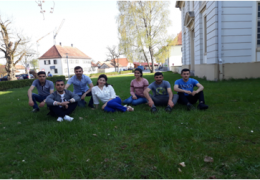


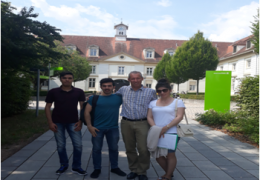
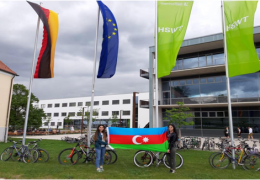
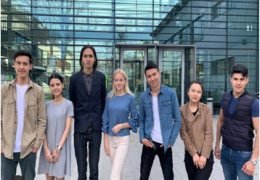

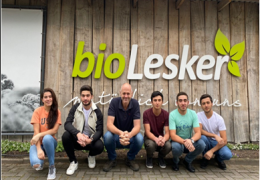


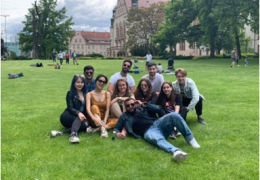
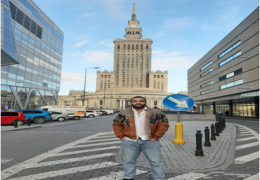


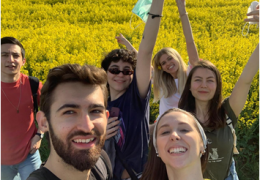





 EN
EN RU
RU
